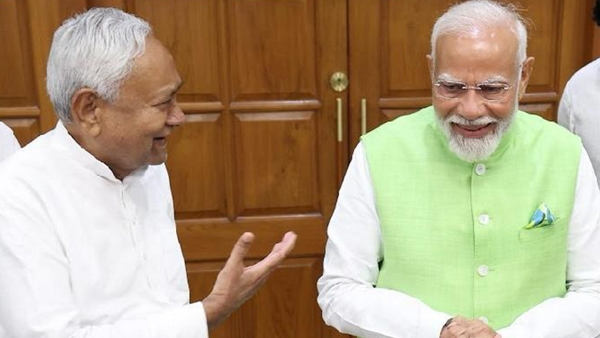New Delhi: As the BJP-led National Democratic Alliance prepares to form the new government, one of its key allies, Janata Dal United (JD(U)), has advocated for the implementation of ‘One Nation, One Poll’, a major promise from the BJP’s election manifesto.
Several opposition parties, including Congress, TMC, and CPM, have strongly opposed the proposal, arguing that it undermines federalism.
Speaking to The New Indian Express, JD(U)’s national spokesperson and former Rajya Sabha MP, K.C. Tyagi, reiterated the party’s support for ‘One Nation, One Poll’, which aims to hold simultaneous elections for the Lok Sabha, state assemblies, and local bodies nationwide. “We have always supported the idea of ‘One Nation, One Poll’,” he affirmed.
JD(U)’s support is crucial for the coalition government as implementing ‘One Nation, One Poll’ will require constitutional amendments in Parliament. These amendments, however, do not need approval from state governments. Despite the NDA securing over 290 seats, the BJP did not achieve the majority mark of 272 seats in the Lok Sabha. Consequently, its allies, Chandrababu Naidu’s TDP in Andhra Pradesh and Nitish Kumar’s JD(U) in Bihar, have become pivotal in forming the coalition government.
In the 2024 Lok Sabha elections, JD(U) won 12 seats, while TDP secured 17 seats in Andhra Pradesh.
JD(U)’s endorsement for simultaneous polls is particularly significant in light of its call for early assembly elections in Bihar to coincide with the Jharkhand elections later this year, rather than in 2025 when they are scheduled. “The Lok Sabha election results demonstrated the party’s strength in the state. We want early assembly elections to capitalize on this momentum,” said a JD(U) leader.
In March this year, a high-level committee led by former President Ram Nath Kovind submitted its report to President Droupadi Murmu, recommending simultaneous elections for the Lok Sabha, state assemblies, and local bodies.
Once enacted, the law will synchronize the terms of state assemblies formed between 2024 and 2028 with the 2029 Lok Sabha elections, thereby shortening their tenures. For example, states like Kerala, West Bengal, and Tamil Nadu, which are due for elections in 2026, will see their terms cut short by two years, while states like Karnataka, Chhattisgarh, and Telangana, which are set for 2028 elections, will lose four years. Similarly, Punjab, Uttarakhand, and Uttar Pradesh, due in 2027, will also have shortened terms.
To achieve this synchronization, the panel proposed adding Article 82A to the Constitution. This article would allow the new government, following the Lok Sabha elections, to set an “appointed date” for these constitutional changes. All state assemblies formed after this “appointed date” would have their terms expire concurrently with the Lok Sabha.






